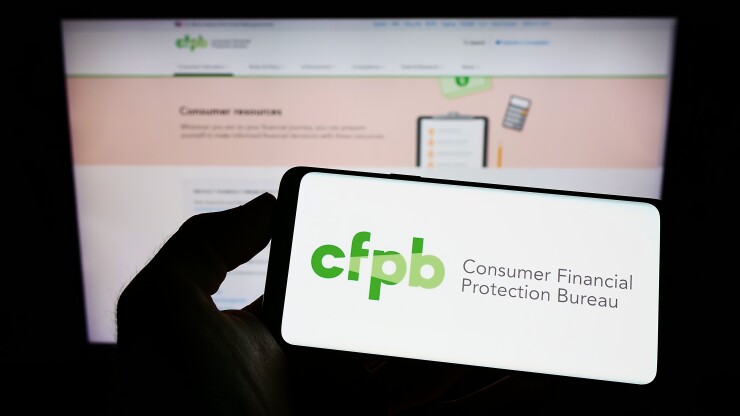
Consumer confidence and
A major driver of uncertainty is regulatory activism and overreach. Federal government agencies are expanding their scope and grip beyond their traditional or statutory domains. Regulatory threats and costs are draining optimism and forcing small businesses to waste resources that could be used to survive inflationary pressures or invest in more productive uses. At a time when profits are already squeezed and consumers are tightening their belts, the federal government should not be piling on with new costs.
The
In
The Consumer Financial Protection Bureau issued a final rule pursuant to its broader open banking proposal Wednesday that would require standard-setting bodies to include public interest consumer groups and others to receive bureau recognition.
Make no mistake, this is a sector dominated by small lenders, and many focus on small-business financing. This source of capital is critical to local small businesses for meeting key needs, such as operational costs, initial startup financing, new equipment and technology or business expansion. Already, access to capital is difficult for many small-business owners, and aggravating that difficulty is uncertain economic conditions and rising interest rates. According to the Small Business and Entrepreneurship Council's last
When small lenders and local small businesses simultaneously express unease, this is not a good sign for our economy. In fact, it should raise reg flags for policymakers, elected officials and regulators alike. The CFPB, like other regulatory agencies, must not only be flexible in their regulatory approach, but actively engage with small-business owners and the broader industry to understand the downstream effects of its regulatory proposals. Rather than fueling uncertainty, the CFPB should be devising strategies that facilitate clearer policies that bring more certainty to lending markets.
Capital is a key ingredient for fueling entrepreneurship, innovation and small-business success. Entrepreneurs and small businesses need capital and abundant financing options. Helping to facilitate clear lending guidelines that encourage and enable finance options are goals the CFPB needs to embrace. When financial options are protected, consumers and small businesses are protected. And isn't that what the Consumer Financial Protection Bureau claims it is all about?






